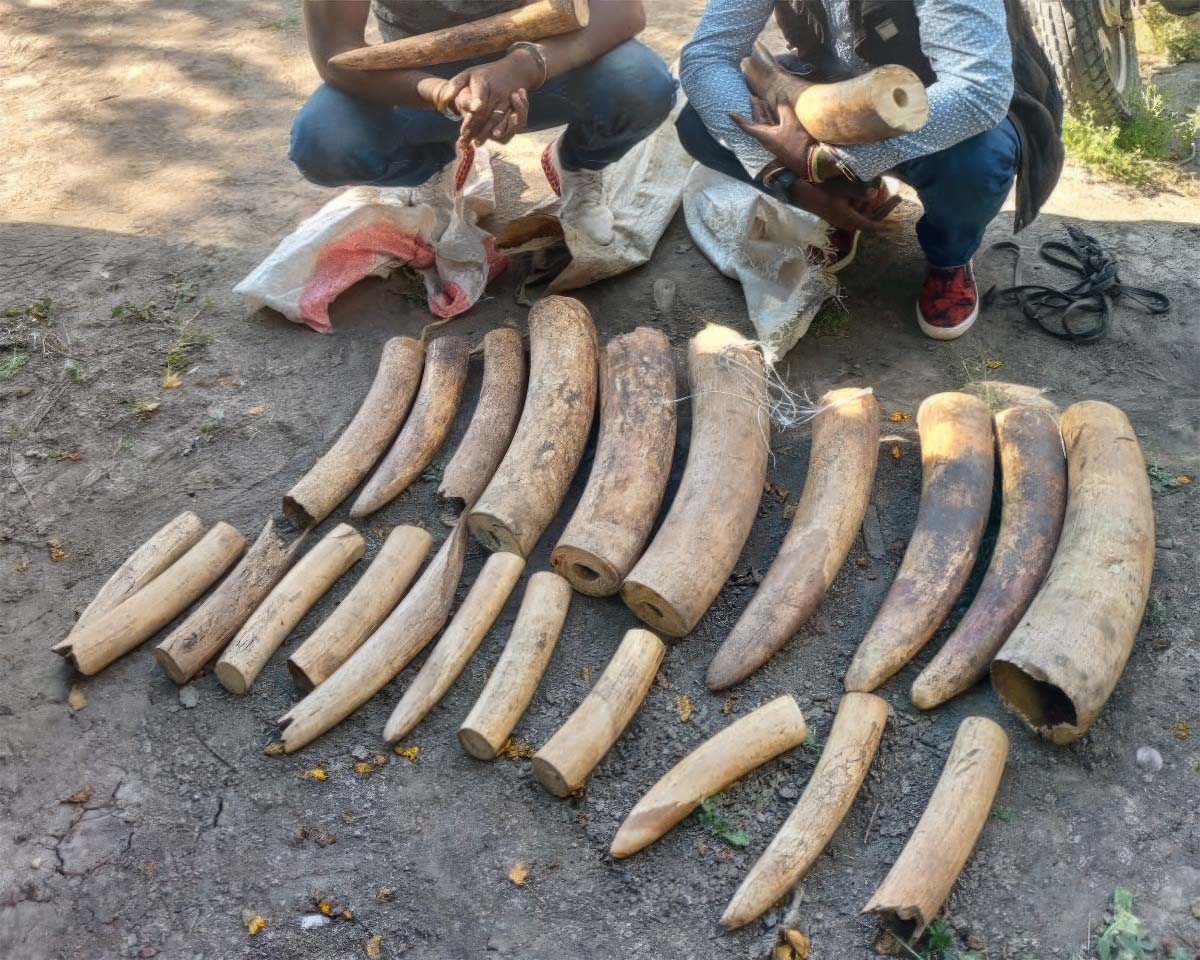
Isinya is a hot, dusty town situated along the Namanga Highway, a key artery connecting Nairobi to Tanzania. It’s a key refueling station for the hundreds of trucks that pass through it every day. And for those who might be tempted, a seemingly perfect location to sell illicit items before disappearing without a trace.
To combat this, Big Life has built a wide and highly effective network of informers across Kenya and Tanzania to ensure such people are exposed and prosecuted.
That is exactly what happened to two men attempting to sell 24 pieces of ivory weighing 56 kg near a shopping center in Isinya last week. Using Big Life intelligence, a KWS agent acted as a buyer while another team swooped in to make the arrest. This bust brings the total ivory confiscated this year to 213 kg. While it is suspected that the tusks are 2-4 years old, it continues an upward trend we’ve been tracking in ivory trafficking.
According to our data, there was a clear reduction in confiscated ivory from 2017 to 2021, dropping from 1,000 kg to 370 kg. But alarmingly, these numbers have been creeping back up. Last year, we confiscated 1,482 kg, the most since our records began in 2016.
It is very difficult to point the finger at any one cause. But is likely due to a combination of “opportunistic” ivory sales following high elephant mortalities during the recent drought, lower farm yields and labor opportunities, overshadowed by nationwide rates of inflation and rising cost of living that could be making such incomes from illegal means appear more attractive. The rate of elephant poaching, while still low, has also risen elsewhere in Kenya since 2020.
The illegal trade in elephant ivory is a serious threat. Big Life's intelligence network and partnership with KWS are critical in the fight against this trade. Together, we continue to demonstrate that wildlife conservation is a collaborative effort that spans governmental organizations, NGOs, and the local community.
